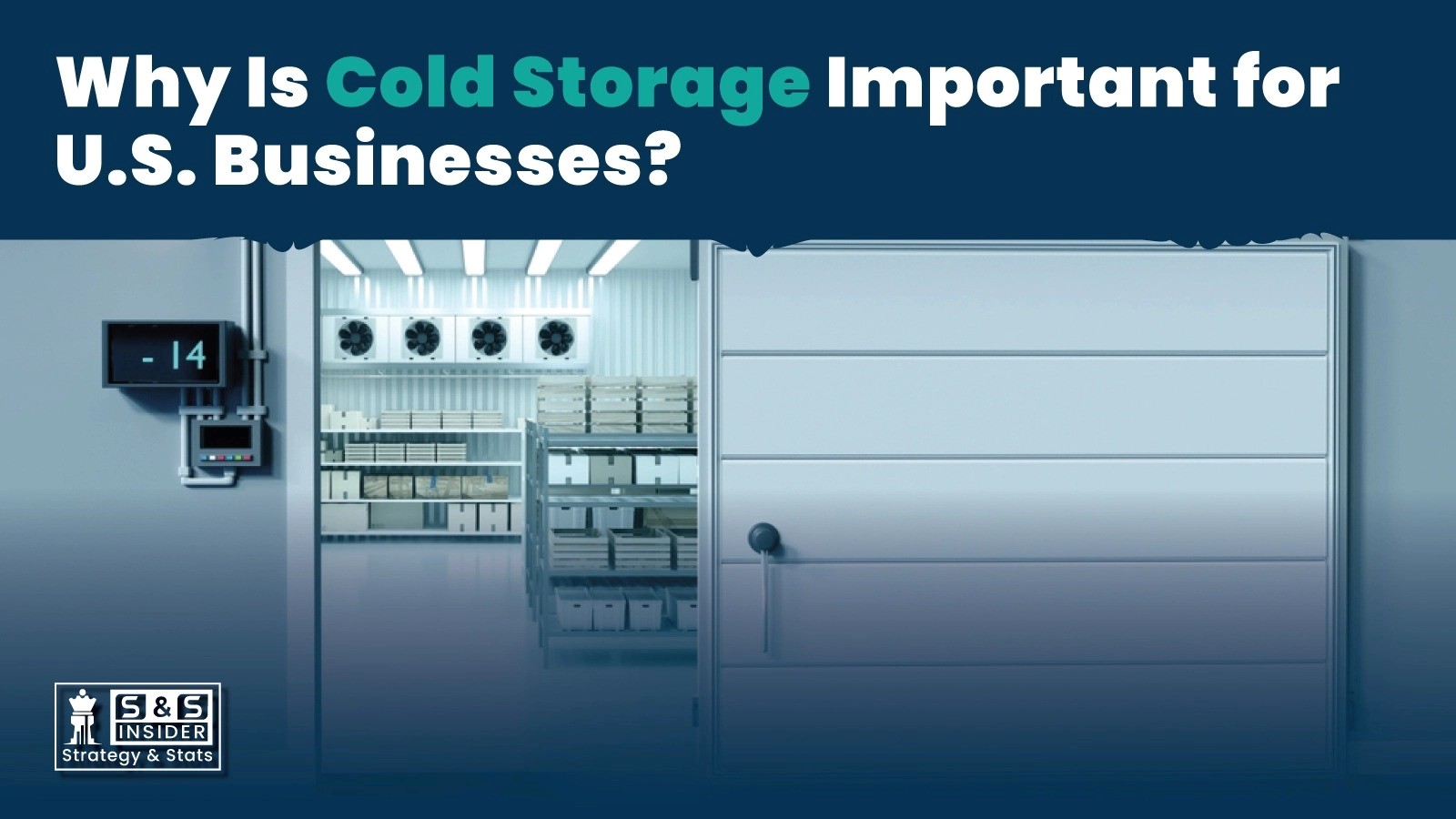
Cold storage is transforming U.S. industries, supporting growth in food and pharma, with a projected market value of $102.1 billion by 2032.
Over the last few years, the efficiency of the cold storage sector in the U.S. has become extremely rapid in almost all aspects. According to the Law, the U.S. cold storage market has a valuation of about $36.9 billion as of 2023 and looking forward to 2032, this market is expected to be around $102.1 billion, which indicates a CAGR of 12.5% during the forecast period from 2024 to 2032.
Some of the reasons that have fueled this growth include the increased desire of consumers to strengthen business foods with fresh, healthy ingredients, the appetite for ready-to-eat foods, and the expanding pharmaceutical market all demonstrating how critical the cold storage market is among different sectors.
The first goal of cold storage is to maintain the quality and safety of products, which mainly consist of fruits, fresh vegetables, and meal prep items—foods that are sensitive to temperature. If there were no properly managed cold storage for these types of goods, they would spoil in one to two days in normal or hot climates, thus causing significant losses to businesses and less food for consumers.
The expanding spheres of the pharmaceutical and healthcare industries are also creating the need for plenty more specialized cold chain logistics. Temperature-controlled medication, vaccines, and biological samples are only effective when kept in the right conditions. It is not lost on the practitioners dealing with these issues that such practices affect people’s health at a very personal level.
Particularly after the pandemic, the increase in demand for cold storage facilities has continued to grow with the rise of e-commerce. With more customers ordering items to be delivered to their homes, it is paramount for businesses to take care of products that need special temperatures during storage and transport, especially in the heat of the day. Such changes in consumer habits require appropriate cold storage solutions that allow more orders to be fulfilled without waste, and spoilage could be less.
Moreover, consumers’ inclination for convenient, healthy, and fresh food also heightens cold storage demand. Fast-paced lifestyles have increased the acceptance of frozen foods, like ready-to-eat meals, which have a longer shelf life yet maintain the same quality. In the U.S., the frozen segment of the cold storage market accounts for about 80-85% of market share and leads the U.S. cold storage market.
The growth and advancement of cold storage technology have greatly contributed to the performance of business practices in the sector and enhanced the degree of sustainability in the industry. There has been significant progression in technology concerning automation and robotics, with the most notable being Automated Storage and Retrieval Systems (ASRS), which help increase storage density and retrieval times. Such technological inputs not only enhance productivity but also cut workforce expenses, thus creating more room to optimize resources.
Advanced technologies such as the Internet of Things (IoT) are being used in cold storage facilities, making it possible for temperatures to be controlled and managed from a distance. This reduces the rate of product wastage, which is ideal, especially for product quality and safety.
Certain areas of the United States are facing the urgent necessity of building better cold storage capacity and are providing tax concessions and other benefits for investment. For instance, southeastern states are seeking to improve conditions favorable for the development of cold storage infrastructure in the region’s active farming zones. The availability of funds and grants in West Coast states is also contributing to the upgrading of cold chain storage operations in place, hence improving the infrastructure.
These incentives not only facilitate the growth of cold storage facilities but also create jobs and stimulate local economies. As businesses invest in cold storage solutions, they contribute to a more robust supply chain that benefits both producers and consumers.
Cold storage has become an essential component of U.S. businesses across various sectors, be it food and beverage or pharmaceuticals. The increasing demand for fresh produce, convenience foods, and temperature-sensitive medications underscores the importance of efficient cold storage solutions in maintaining product quality and safety.
As technological advancements continue to reshape the cold storage landscape, businesses must adapt to these changes to remain competitive. By investing in cold storage infrastructure and leveraging modern technologies, companies can not only enhance their operational efficiency but also meet the evolving needs of consumers in an increasingly demanding market.
As the cold storage market continues to expand, it will undoubtedly play a pivotal role in the future of U.S. businesses. Connect with us for a detailed report.